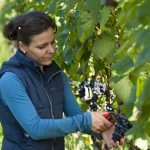Throughout 2018 and 2019, industry experts in agriculture and horticulture have volunteered their time and expertise to projects covering the following skills areas:
- Agribusiness
- Carbon Farming
- Irrigation
- Protected Horticulture
- Sports Turf Management
- Viticulture
The projects were driven by industry to support the agriculture and horticulture industry as it adapts to technological advancements, shifting climate conditions and changing markets.
Thanks to their efforts, the skills standards have been endorsed by the Australian Industry and Skills Committee (AISC), at their meeting on 9 October 2019. They are published on training.gov.au within the AHC – Agriculture, Horticulture and Conservation and Land Management Training Package. This means they are now available for use by industry and registered training organisations.
Click through to the individual project pages, outlined below, for more information.
A Note About Arboriculture Skills Standards
The arboriculture units of competency, skill sets and qualifications are currently going through the AISC endorsement process, including further consideration by the State Training Authorities relating to broad policy issues. These issues relate to the use of industry standards in training packages, and this policy approach may affect the proposed update. During development of the skills standards, subject matter experts, industry leaders and employers indicated the importance of training providers using the Minimum Industry Standards (MIS), to work being carried out safely and effectively. The MIS are developed and maintained by Arboriculture Australia, in consultation with industry. Skills Impact is working with the State Training Authorities on the best way of supporting the use of those standards within current policy interpretations. Arboriculture is an occupation that carries a potential high risk to the safety of workers. It has been acknowledged by all involved in the current considerations that it is important for the updated skills standards to be made available as soon as practicable, so work to resolve these issues is ongoing. A decision is expected before the end of the year.

Carbon & Agribusiness Management
As industry adapts to shifting climate conditions, technological advances and a changing operating environment, carbon farming and agribusiness offer significant opportunities.
As a result of this project, new skills standards are available to support skills in storing or reducing carbon emissions. A range of Carbon Farming methods including vegetation, agricultural, soil-based and savanna burning have been captured in eight new skill sets and seven new units of competency.
Similarly, skills standards in Agribusiness now encompass the skills required to run a commercial farming enterprise, supporting farmers, managers and conservation and land management personnel adapt to new technology and shifting markets.

“As an instructor that delivers the Agribusiness Diploma and Farm Business Management Skill Set, I jumped at the opportunity to participate in the ‘Agribusiness and Carbon farming project… Overall the outcomes achieved will better reflect the learning needs of agribusiness and carbon farming.” Rod Morris, Queensland Agricultural Training Colleges
Horticulture Technology
Irrigation and protected horticulture, or protected cropping, are highly precise sectors in which technology plays a critical role.
Experts across a range of types of irrigation have contributed to this project to update skills standards to match current work practices and equipment. This in turn will support the quality and sustainability of our crops into the future.
The precise methods of Protected Horticulture have also been captured in newly developed skills standards specific to the technologies and practices of the sector. This has been captured in in six new units and three new qualifications, supporting the protected horticulture sector as it continues to address issues related to food waste and security.

Sports Turf Management
The sports turf management industry has driven this project to update skills standards to better reflect the highly specialised nature of the sector.
Being responsible for the upkeep of many types of grassed sports grounds, each requiring unique skills and knowledge, industry required more detailed and in depth training and assessment.
The complexity of this work is now reflected in the newly published sports turf management qualifications, which have been strengthened to reflect skills requirements at all levels – including volunteers, apprentices, tradespeople, managers and consultants.

“As a result of this process the Western Australian Turf Industry now possesses a greatly increased optimism towards the future of Sports Turf Management and the improved level of quality trained turf managers emerging to meet the industry’s challenges.” Tony Guy, President, Sports Turf Association WA
Viticulture
Thanks to the input of the industry, the Diploma of Viticulture now captures the full breadth of grape production in Australia, covering skills for producing table grapes as well as for producing wine.
The revised diploma now reflects the needs of all commercial grape producers in Australia, defining skills standards in leadership and management, particularly regarding the planning and implementation of biosecurity measures.

